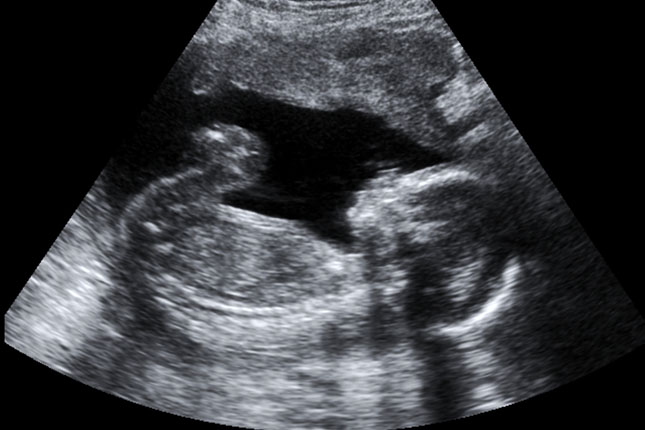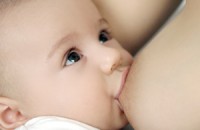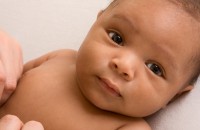Preggie Pals
Seeking Support: Miscarriage and Infant Loss
[00:00:00]
Please be advised, this transcription was performed from a company independent of New Mommy Media, LLC. As such, translation was required which may alter the accuracy of the transcription.
[Theme Music]
YVONNE ROTHERMEL: Having a miscarriage or still born or an early infant loss can be very isolating and emotionally difficult for a woman. During this time how can you reach out and get the support you need? I am Yvonne Rothermel, a Licensed Clinical Social Worker in private practice specializing in Postpartum Mood Disorders, Birth Trauma and Infant Loss. Today we will discuss how to reach out and seek support after losing a baby. This is Preggie Pals, episode 75.
[Theme Music/intro]
ANNIE LALRD: Welcome to Preggie Pals broadcasting from the Birth Education Center of San Diego. Preggie Pals is your weekly online on-the-go support group for expecting parents and those hoping to become pregnant. I am your host Annie Lalrd. Thanks to all of our loyal listeners who have joined the Preggie Pals Club. Our members get special episodes, bonus content after each new show plus special give aways and discounts. See the website for more information. Another way for you to stay connected is by downloading our free Preggie Pals App available in the Android and iTunes market place. I would like to throw this over to Stephanie at this point who is going to be talking about our virtual panelists. Stephanie, do you want to go into that a little bit more?
STEPHANIE SAALFELD: Sure, Annie. Okay, so basically if you are in the San Diego area or anywhere in the country, anywhere in the world really, we will be posting some kind of sneak preview questions before our tapings about the week before and we want you to get involved by answering our questions and if you are on twitter you can follow the #preggiepalsvp. If you are on facebook just go ahead and like our facebook page. If you want more information you can go to www.preggiepals.com , go to the community tab and you find ‘be a virtual panelist’ for more information.
ANNIE LALRD: Well, wonderful! Thank you Stephanie! Well, let’s get into our panelists introduction this morning. Starting off with myself, I am Annie Lalrd. I am 35 years-old. I am a government contractor by day. I am on a birth doula on Hiatus right now as I am 35 weeks pregnant. So none of that for me right now! I have two children; again I have mentioned the third one is on the way. I have had three losses, all of them between my first and my second children. Two of them were miscarriages and then the third was a ruptured ectopic pregnancy which was very scary and sad. So let’s continue right on.
RACHEL REDHOUSE: Hi, I am Rachel Redhouse and I am 31 and I have a home day care. And I have four living children and I have had two losses. One, twelve week miscarriage and one was a full term infant loss.
SKY WILSON: Hi, I am Sky Wilson and I am a stay to home mom. I have two surviving or living children. One is seven, one is nineteen months. I have suffered four losses. Three were first trimester miscarriages and then I suffered the neonatal loss of my son, Brandon in 2009 after a full term pregnancy. He was three days old.
SUZANNE WEELS: Good morning, I am Suzanne. I am 43 years old. I am a chemist but I have taken a few years off to be home with my boys. I have two sons, nine and eleven. Those were my first two pregnancies. And then after those boys were born I lost three, my next three pregnancies. The first one was thirteen week loss. The second one was a second trimester loss due to premature rupture of membranes and my third one was a first trimester miscarriage.
ANNIE LALRD: Well, ladies, thank you for joining us today. I realize that this is a sensitive topic. We have all experienced loss. Some early losses, some later losses. This is a difficult topic. So, Yvonne, thank you for joining us today and all the panelists, thank you for joining us this morning.
YVONNE ROTHERMEL: Thank you!
[Theme Music]
SUNNY GAULT: Okay, we have a question from one of our listeners. And this comes from Christer Davis and Christer writes, “my husband and I are in the planning stages of conception. My doctor has already said that I would be considered very high risk because of my size.” She said she is 4’10” and 90 pounds. Her mother’s pregnancy history as well, her doctor was her mother’s doctor and saved their lives when she was six months pregnant and experiencing ecclampsia.
DR.SEAN DANESHMAND: Right.
SUNNY GAULT: Ecclampsia? Isn’t it preeclampsia? They are two different things?
DR.SEAN DANESHMAND: Ecclampsia is seizures after development of preeclampsia.
SUNNY GAULT: Okay, got it. She says, “He already told me I would be required to have a C-section and early delivery. I would really like to at least consider a natural birth. I hate meds and they affect me harshly but he hasn’t even open to this idea and I am not pregnant yet. Am I too optimistic or is he correct that a safe pregnancy and birth aren’t possible for me?” So Dr. Daneshmand, what do you say to that?
DR.SEAN DANESHMAND: Well, I think, you know, it’s never a 100%. The recommendations we make aren’t actually true. So how I have seen patients that are 4’10”, 90 pounds deliver vaginally, yes. So it depends on what her pelvis is like, you know, what the size of the partner is. She develops for example gestational diabetes, so I would say that she has got a certainly a high likelihood of needing a cesarean section. I mean, 25% of women right now undergo C-section here in the US and that number for her most likely is going to be higher. But I want to say when you are absolutely. So Christer I would say, you know, go through the pregnancy, obviously now that he or she is going to check your pelvis and they are going to have the ultrasounds. There would be some serial ultrasounds and just talk to your physician, but it’s never absolutely 100%.
There are patients that I examined and I tell them, “you know for example your pubic angel is very narrow and we have got a high risk of needing a C-section and we may end up with the C-section but it’s never 100%, because it could be wrong.
SUNNY GAULT: Right!
DR.SEAN DANESHMAND: So, if the patient really wants to deliver vaginally which is always better for both mom and baby, then I would give it a try but at least we have that in the back of our mind. Christer, I would say, if she does go into labor let’s say the baby’s size is 7 pounds and she has been well and her clinical pelvimetry is reassuring. If obviously she stalls then more likely that we are going to mess around too much and go ahead and deliver her. Again, the idea is to have a safe baby and a healthy mom. That’s the idea. That’s the goal.
[Theme Music]
ANNIE LALRD: Today on Preggie Pals, we are discussing how to reach out and seek support after losing a baby. Our expert today is Yvonne Rothermel; she is Licensed Clinical Social Worker who specializes in infant loss. Again, thank you for joining us today. So, what are some common emotions that a woman experiences after a loss?
YVONNE ROTHERMEL: Well, first of all, I think these kinds of losses are very different than other kinds of losses. If someone who maybe loses an uncle where everyone knows the person and can have memories and share. These are very lonely losses for moms. Very isolating and we are talking about losses like miscarriage all the way up to infant loss and there are different challenges obviously for each and we tend to think that as gestational age goes on that losses get more difficult and generally that may be the case but I think, its very important to understand that early losses and miscarriages are extremely difficult as well because it’s a very distant franchise loss because people will think, oh its kind of you know, you don’t really tell people that the twelve weeks its kind of like, it’s a little bit more like expected that you should just move forward and try to get pregnant again. But for some people that’s very difficult and we don’t know their history about how hard they tried to get pregnant. How attached they were from the moment they got pregnant about this baby and what number of losses was for them as you can see around the table you have had multiple miscarriages and that can be very traumatic as well.
So, you know, it’s very lonely and isolating. Often times at first everybody is in a fog. There is sometimes a lot of medical things that need to happen to get the mom, sort of back on the road to recovery. And so right when you are kind of coming out of the fog a few months down the road, its sort of the time when all the emotions hit you and yet everyone thinks that you should be on your way to healing.
ANNIE LALRD: Exactly!
YVONNE ROTHERMEL: And that can be a very lonely place to find yourself. And a time that’s really important to seek out help.
ANNIE LALRD: Well, I can definitely relate and please ladies around the table chime in at any time, so I can speak too my ruptured ectopic pregnancy. I did not even know I was pregnant! And so there was emergency surgery that needed to happen in order to have me survive. And so, that was number one on everyone’s priority list. It wasn’t until the emotions of just, how scary that was caught up to me afterwards. Oh, my goodness! I could have widowed my husband and my one existing child would have not had a mother at that point. That was just those, emotions of fright and fear and then what you said the loss came a little bit later, once everything was stable. They replaced a lot of the blood I lost.
YVONNE ROTHERMEL: And the other thing, I think that gets minimized with moms is that some of these losses can be very traumatic. Because I mean, without getting in too much detail, I have heard lots of kinds of different scenarios which are incredibly traumatic and how women lose their babies and so you also have a trauma component to it. So you have got trauma and you have got loss, both. And even if you don’t meet criteria for PTSD there is still traumatic stress and trauma usually accentuates grief and grief accentuates trauma. So moms are sometimes dealing with both but they don’t sort of racking themselves.
ANNIE LALRD: Right.
YVONNE ROTHERMEL: And if they go back to the hospital they drive by, they may have a reaction. You know, having to go back for the postpartum visit at the doctor’s office can be very difficult and traumatic for moms to do. So there is a lot we don’t still recognize about that.
SUZANNE WEELS: I was just going to add to that and mention that, that was one of the things for me that was the most difficult and surprising was the physical component because like Yvonne said, when we lose someone we love typically there’s not a physical connection to that experience as far as you know. Hormonally well, the loss of blood and the physical part of it……
ANNIE LALRD: Right! Its not the same thing as losing a greater uncle or something like that.
SUZANNE WEELS: Right, or even a child that has been living, I think, that was unexpected for me was the emotional forgetting that when you are pregnant there is a lot of hormones and things going on and so you have that experience going on as well as the physical trauma and emotional trauma, kind of all together and it’s a lot. Its lot more than you may expect and I think also I wasn’t expecting to feel so devastated by the experience. My first loss was a thirteen weeks that was my third pregnancy, my first two pregnancies resulted in my two sons that I have. I had actually thought about being a surrogate because I was able to exercise during pregnancies, I felt well. I was never sick. My boys were born full term, healthy and then having that truck hit me and basically, now what! Yeah, it was really ….. the trauma aspect of it was something I wasn’t expecting.
ANNIE LALRD: Right.
RACHEL REDHOUSE: Speaking on the loneliness part I think its hard too especially if its an earlier loss. Your partner may not necessarily have connected with that pregnancy yet or as much as you do as a woman and so you feel lonely although your partner may feel the pain. It’s a different kind of pain and they just want to comfort you and make you feel better but you do feel lonely because there is no one that can relate to you at that point even your partner who makes you feel better.
SKY WILSON: You are the experienced one that yet.
ANNIE LALRD:: Right, and Yvonne, that kind of goes into my next question is, so all these feelings of loss, of trauma even with the woman who has the lost the pregnancy, lost a child, how are the emotions different for the woman’s partner?
YVONNE ROTHERMEL: Well, I think, as Rachel said, it can be very different depending on gestational age, right. And it may not feel as much, I mean, not to minimize dad’s experiences because I am sure there are many dads that are very devastated by the miscarriage as well. But as you say, it’s not the same experience. They don’t see it is not as physical to them, its when the baby grows and may be they can feel the baby and see him on a ultrasound.
But often times what you see with couples is that initially mom tends to usually, typically be the one who has more of the emotional part of it and then dad’s often compensate and try to take care of mom, right. And but the moms feel like well where is his grief? You know, I am in this by myself but really what you see is that dads often trying to take care of mom and you see this sort of see-saw effect that if you don’t sort of understand that dynamic you can feel like they are not affected by anything. And it can cause problems and what we really see to is that women tend to be intuitive grievers, not all the time but where there they are more emotive and that’s how they get through grieving.
Dads tends to be more intuitive grievers where they get busy doing things to kind of get through their grief. They may all of a sudden have lots of projects, or will be playing a lot of video games, you know, and so this discrepancy can cause issues. But it’s important to say and I say this every time is that we have this myth that parents who lose their child are also for losing their marriage. Compassionate Friends which is a national organization that supports bereaved parents did two studies and show that the actual divorce rate among people who have had loses is actually lower than the national divorce rate. So that’s a very important to make clear. Because I think that adds more anxiety to the whole situation so the most important thing is to try to keep that communications open and respect each other’s different grieving styles.
ANNIE LALRD: You mentioned about different things and different ways that usually the woman and the partner react and how they deal with grief. What kind of things can the partner do or kind of other loved ones of woman who has had experienced a loss? What can they do, what can they say to help support that woman during that time?
YVONNE ROTHERMEL: Well, I think the most important thing is not let your fear of what to say and do make you go away because that’s what happens. I mean, I think everybody here probably had an experience like that. And everyone kind of focuses on “what do I say?”, but I think what’s more important is really understanding what the process is for the family because if you understand that then its going to help you know what to do and so knowing that its going to be a foggy time initially and then a few months later they are not going to be doing better they are probably going to be doing worse. It’s probably really going to hit them. Don’t go away, don’t assume that they finer of few months check in. Don’t assume that they don’t want to hear if the baby was an older baby, they name their baby that they don’t want to hear the baby’s name because that’s going to upset them. As a client of mine that the only time they don’t cry is when somebody is saying my baby’s name. There is a real need for that. Or don’t assume that they don’t want to talk about the miscarriage and maybe they don’t but it’s always sort of good to check in and keep those lines open. It’s amazing how many stories you hear. I have even close family members who don’t go forward into families.
SUZANNE WEELS: I agree Yvonne and I was just thinking what that brought to mind was and especially for a miscarriage, a first trimester losses, I think what happens especially if its someone’s first pregnancy would often times that happens, during that time and all they have really ever experienced is being pregnant then they get to their due date and then it becomes, “oh I should have been pregnant too, or I should have my baby” and that’s a whole another trauma that we go through of “oh, my gosh, my baby would be here now”. And then it becomes you know, sometimes its difficult to see pregnant women and then it’s difficult to see newborns and so the process doesn’t really end often times, especially if you are unable to have a successful pregnancy in the future. Then from then on you see families, you see the whole …just seeing young babies or seeing children that would be the age of that child can still be traumatic and I think a lot of times you know, we would.
Especially for myself I have a friend who lost her daughter at nine years of age due to a car accident. And that’s unimaginable to me. And I feel like a lot of times we tend to compare our types of losses to someone who lost their child to illness or you know, a trauma like that and we sort of start to minimize our own experience and doing this comparative type of thing but in reality its just a different experience and hits us in different places and …..
ANNIE LALRD: Well you said something, interesting so Suzanne have seen pregnant women and that was a real trigger for me.
YVONNE ROTHERMEL: Oh, yeah, that’s a huge trigger.
ANNIE LALRD: Especially being a birth doula, you know, now other birth doulas who are in the community, they have to just take a break because its too hard emotionally for them. After my first loss I was married to a military man and so that’s kind of what we do they get back from deployment and then you get pregnant. So everybody is constantly popping up babies and so that was very hard for me in my community where it just every time I were allowed, I was keyed into that of is everyone pregnant but me? You know, I couldn’t go to baby showers and all those things.
SUZANNE WEELS: I actually belong to a wonderful playgroup with lots of really wonderful moms and I ended up having to drop out of the play group because everybody was having their second baby. Everyone was pregnant at the same time that I was and they were all having their babies and it was too much for me and some of them I knew some of them understood and some of them I felt they took it personally like you know, but it just had to be. I finally realized this is something I need to do. I need to be in a different environment so that I am not constantly surrounded by people talking about babies and being pregnant and that normal and I think its important for families going through this to understand that these emotions are normal, they are typical, there are many of us that have been through this and we all think maybe we are overreacting, over crazy. But the truth really is that it’s all on a normal continual of reaction to having gone through this.
SKY WILSON: I was going to touch on when we were speaking about the things that could be said, you know, to someone in such a situation of loss. You know, and just preparing to come on the programme, I obviously have been thinking about my own experience and thinking about these types of questions. Four years I also had a loss of my son, I thought to myself, I am still struggling to come up with an answer because I think that there is this hope that everybody has that there is string of words that are perfect and compassionate that you can put together to say to somebody who has been in this situation and no such words exist because the implication in the question, “what can I say to somebody?” is that there would somehow be this perfect word or a thing that you can say that would healing, hope, comfort to something or there really isn’t any.
As I was thinking I came up with a question to myself which was if, gosh! What can I possibly say! And then it occurred to me if somebody has said that to me if, I am sorry excuse me, nerves get invest of me, if somebody who come to me and they said, “Sky, I am so sorry, what can I possibly say!” That actually kind of encompasses a lot of things and would in itself have acknowledged a few things. One, it would acknowledge the enormity of my grief and my loss and in doing so if somebody said that to me it would also give humanity to my baby at any stage and recognize their value to me and validate my feelings of loss and grief.
ANNIE LALRD: And not even “what can I say”, but just “I don’t know what to say”.
SKY WILSON: Exactly!
ANNIE LALRD: I am so sorry for what you are going through and I don’t even know what to say. I am just speechless and so sad for you and I am thinking of you and I love you.
SKY WILSON: My! Exactly…that confirms that you can say that.
ANNIE LALRD: That’s really all you can really say then, and I am thinking of your sweet baby, you know.
SKY WILSON: And like Yvonne said too, if there is a situation where you have got a name for your child, recognizing and speaking that name is huge to a mom who has been through that and a dad as well.
ANNIE LALRD: Ladies, thank you for all your stories and your experiences and sharing that. When we come back we’ll discuss how to reach out for support after a loss as well as how to deal with different emotions in the future pregnancy. We’ll be right back.
[Theme Music]
ANNIE LALRD: Welcome back, today we are talking about seeking support after losing a baby with Yvonne Rothermel. Yvonne, we were talking about this a little bit before we started taping but how can pregnancy loss affect a woman during a future pregnancy?
YVONNE ROTHERMEL: Lots of way, right. First of all, when you have a major loss you also have what’s called secondary losses. Those are other losses associated with the main loss which is one of the big ones for moms is that I have lost that ignorant blissful feeling that most pregnant get to have who have not been through loss. And that is a huge loss for moms and you really feel it in subsequent pregnancy because you don’t know get to feel as excited about it. You are stressed out. You are anxious. You may have times where you are able to feel moments of hope and joy but for the most part it can be very very stressful. And often times you will see moms doing not buying things for the baby, not setting up the room for the baby, because they have had the experience of having to get rid of all of it or having to just kind of put the packet away and that’s very hard.
So there is this horrible dilemma of wanting to attach because may be you might lose this baby, you want to still come up. But there is also this feeling of I don’t want to attach too much because I don’t believe this baby is really going to be here with me and then often it calls to going back to the hospital the triage room. You know, if you are at the same hospital all these things can be very traumatic for moms. And I think we really need to do a better job educating medical personnel about subsequent pregnancies. So that women don’t feel so crazy when they have all these emotions and going because they are very typical. And if you have a good health care provider it can help a lot in managing some of that.
SUZANNE WEELS: I was going to say and also so they don’t feel crazy calling their doctor far more often than most pregnant women do.
YVONNE ROTHERMEL: Right.
SUZANNE WEELS: About every little ache and pain and what not.
YVONNE ROTHERMEL: Right, its traumatic thinking.
SUZANNE WEELS: Because one of the most common things that we feel is what did I miss? I should have done something when I felt this or that. I should have called my doctor. There is this illusion that we could have prevented the loss and so many of us call our doctors much more during that subsequent pregnancy or pregnancies and hopefully the doctors will be kind and compassionate and understanding about the fact that we need a lot of reassurance.
ANNIE LALRD: Or may be reaching out to medical care providers and asking for extra testing, extra ultrasounds, and reassurance of “okay, this is a different pregnancy and everything is going okay”.
RACHEL REDHOUSE: I think it can difficult too. After my losses each pregnancy seemed to bring different obstacles. I always had something wrong with the pregnancy, you know high blood pressure or we had a problem with the umbilical cord, it was just every pregnancy. Even my healthy subsequent pregnancies I felt like there is always some issues. So, I was always on pins and needles. I was always scared. I just wanted that baby here and then once the baby is here then you have more worries and concerns.
ANNIE LALRD: Yvonne, what are some common community resources? Now, we are here in San Diego. But Preggie Pals has listened to throughout the nation here. What can a woman do to reach out? What kind of support is there for miscarriage and infant loss?
YVONNE ROTHERMEL: Well, I have some names of some of the national supports that women can turn to. One of the nice ones is www.firstcandle.org and they have a grief counseling line. That’s open 24x7 for anybody to call in and that number is 1800-221-7437 and that’s a really good support for moms who might feel lonely and feel like they don’t have anybody to talk to and they can call that line. There is also The Share Pregnancy and Infant Loss Support Group online which is www.nationalshare.org as well as the Missed Foundation which is www.missfoundation.org and Compassionate Friends which is www.compassionatefriends.org and all these various groups, most of them have online support resources as well. Like the Missed Foundation actually has groups. Miscarriage they kind of divided up so you can get on an online group. That’s more specific to your type of loss.
I really think its important to say that not all losses are the same. We tend to lump everything in this sort of perinatal loss but you know, there are some different types of losses like particularly I think for these moms that had medical terminations, who had a poor perinatal diagnosis who then need to terminate the pregnancy, I find these moms really have a hard time finding support services and there is a good online site for them as well called www.heartbreakingchoice.com. So that’s a place that they could go that has more specific support for that type of loss which I think is a very specific loss for them.
So there are lots of places you can reach out. Some of these places have links to local groups where you can get help as well and it is important to reach out. And also you know, in terms of this being lonely loss one of the things I really encourage moms to do and this feels kind of like it’s hard to feel and realize that you need to do this. But I suggest writing an email when this happens when you feel ready to your support group and just kind of stating what you need and what’s helpful. Because the loneliness of the loss comes from a lot of this misunderstanding and miscommunication and sometimes it really comes on the bereaved to be able to kind of say what you need to sort of help people know how to respond to you and I think that can also help bridge some of those communication gaps hopefully bring some more support closer to you. Because people just don’t know what to do when it comes to that.
SKY WILSON: I noticed that I think that people a lot of times , I have earlier said that I think that people are certainly well intentioned for the most part, you know, by and large They are looking for anything that they could say or do to support you and certainly the intentions are good but there is a very huge misconception that when you have gone through miscarriage or neonatal loss or still birth or any of those perinatal losses that you need to have space that you need to be alone and that exactly the opposite what people need and I have spent the last four years describing the support systems, and my life, my friends and family, those who have really been here to show support as my support being quite literally. If you think there is a lot of different analogies that we use sometimes to describe our grief journeys and if you think of a person standing out at the end peer a mom or dad and they are looking out over the beautiful ocean and there is endless possibilities and hope and then this loss occurs. All those support been is beneath you, literally crumble and you just are drowning in pain and sorrow. You feel completely alone and what you need is some under reaching and spring you above those crashing waves and to just be present in your life and to not leave and to be willing with an open heart to listen to you and to allow you to speak about it. That’s been for me one of the biggest parts of my process or healing is to be able to feel free to speak about it very openly and to have that welcome by the people that are closest to me.
SUZANNE WEELS: You were talking about being alone and everyone is different and some people do need to have space and some people need to be surrounded by others but and in my case I needed both. I think there were days that I needed one of the other but certainly there were many days that I sat alone as I needed to be and the phone would ring and I would hear someone leaving me a message and that made me…. I didn’t pick up the phone, I wasn’t in a place to speak to anyone but just knowing that they were thinking of me and they called and they just said, “Hi, you know, no need to call me back. Just want to… like you know, I was thinking of you and you know, hope today is going alright for you and I love you”, you know, that could be done by a text or an email or a phone call because remember we can choose whether we open that email or pick up that phone but just knowing that someone is reaching out is really like Sky said that’s really the important thing.
YVONNE ROTHERMEL: Like you said, Annie, you know, you were surrounded by pregnant parenting moms and often times that the case right? Because there are people having babies who are at that age and you may be getting invites to baby showers, facebook pictures or posting pictures of their new baby and it just feels like this on slot. And so I think it’s important to see yourself as you are having a wound and you need to sort of protect that and its okay, to sort of set some boundaries around what you are going to and what you are not. But I think those friends also need to understand doesn’t mean that they can still reach out to you or need to reach out to you because that’s purely loneliness. Because sometimes she have to push away some of that for a while and you are healing that then you are pushing away to a social group. So I think that’s how friends and family can support. It really understands the need for moms to have just may be said someone is on that but that doesn’t mean they don’t encourage friendship in other ways. You know, and to be sensitive to that.
ANNIE LALRD: Thank you so much Yvonne for joining us today. For more information about Yvonne and her practice as well as information about any of our panelists visit the episode page on our website. This conversation continues for members of our Preggie Pals Club. After the show Yvonne will share some tips on helping older siblings heal from pregnancy loss. To join our club, visit our website www.preggiepals.com.
[Theme Music]
ROBIN KAPLAN: Hi, Preggie Pals listeners. I am Robin Kaplan an International Board Certified Lactation Consultant, owner of the San Diego Breastfeeding Center, and a host and producer of Preggie Pals sister show, The Boob Group. I am here to offer some advice on what you can do during pregnancy to prepare for a positive breastfeeding experience, such as locate a local welcoming breastfeeding support group. Yes, we all know that breastfeeding is natural and normal. Yet many of us first time moms have never really been around a breastfeeding mother. Plus, many of the children we see breastfeeding in public may be covered up with a blanket. So we often don’t even know what breastfeeding actually looks like.
A few years ago, after I had set up my first breastfeeding support group I overheard a group of new moms talking about how they wish they had gone to a breastfeeding support group while they were still pregnant. This shocked me a little bit as I wasn’t sure why they thought this would have been helpful! As I listened to the reasons it began to make complete sense and now I recommend it to all of the first time moms that I meet. And this is what they said; first of all, these moms mentioned that after they had their babies they were a little bit anxious to go somewhere they had never been before. They didn’t know where they would park the car, they didn’t know where to park their strollers and visiting support group while they were pregnant they felt they would be able to figure out all these details as well as taken a vibe of the group to see if it somewhere they felt they would belong. Once seeing new moms at the group with babies under two weeks old, they thought it would help them to come sooner after their babies were born. They thought they would also have been less intimidated.
Secondly, they would have like to see what a breastfeeding woman really looks like, without the cover. How did she sit? How did she latch her baby? Did she use a breastfeeding pillow? Did she wear one of those nursing things? All of these little things they could just gauge just by checking around the room and they felt that that would have been incredibly helpful.
Lastly, they would have liked the opportunity to ask these new moms questions about what life was like with a newborn. Many of the women who attended in my support group were not from San Diego. So they didn’t have a ton of friends or family around who had young children. The support group became their village where they could seek advice from new friends. Pregnant have the opportunity at the support group to interact with new moms, ask questions about local resources, and then just get a general sense of what life may look like after they have had their babies.
Seeing breastfeeding moms especially those who have overcome challenges can be just enough inspiration for a new mom to persevere to meet her personal breastfeeding goals. Especially if you make a connection with another mom who can encourage you during any of these challenges that you may have. Its definitely worth hour during your maternity leave or pregnancy to visit a local breastfeeding support group. So I highly recommend finding one that you will really enjoy. For more great information about what you can do during pregnancy to prepare for a positive breastfeeding experience check out my blog @sandiegobreastfeedingcenter.com/blog and be sure to listen to Preggie Pals and The Boob Group for fantastic conversations about breastfeeding and breastfeeding support.
[Theme Music]
ANNIE LAIRD: That wraps up our show for today. We appreciate you listening to Preggie Pals. Don’t forget to check out our sister show Parent Savers’ for parents with newborns, infants and toddlers and our show, The Boobgroup, for moms who breastfeed their babies.
Next week we are talking about the Webster Technique and how chiropractic care can help turn your breech baby to a head down position.
This is Preggie Pals; Your Pregnancy, Your Way!
[Disclaimer]
This has been a New Mommy Media production. Information and material contained in this episode are presented for educational purposes only. Statements and opinions expressed in this episode are not necessarily those of New Mommy Media and should not be considered facts. Though information in which areas are related to be accurate, it is not intended to replace or substitute for professional, Medical or advisor care and should not be used for diagnosing or treating health care problem or disease or prescribing any medications. If you have questions or concerns regarding your physical or mental health or the health of your baby, please seek assistance from a qualified health care provider.
[00:37:18]
[End of Audio]










